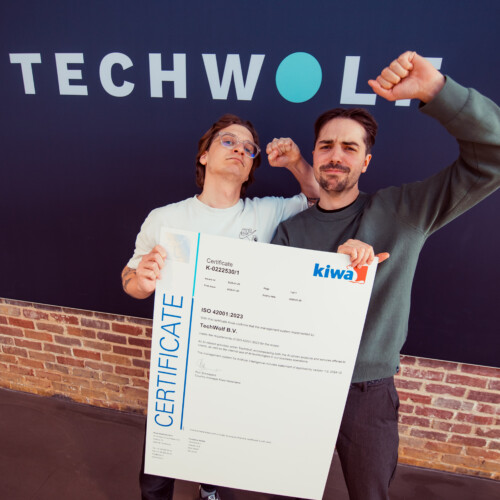How Kris Legroe introduced a skills-based mindset at Telenet
Actionable insights on how companies make the switch to the skills-based organisation.
Kris Legroe, Director of Employee Services at Telenet shares actionable insights on how companies make the switch to the skills-based organisation.
Why did Telenet adopt a skills-based mindset?
Our decision to work skills-based stems from a number of major changes we are going through. Internally, Telenet is adopting a different and agile way of working. Next to that, fibre and 5G are up-and-coming technological evolutions we need to be prepared for. Finally, the changing landscape in the telecom market in general means our clients have different expectations. The combination of these changes got us digging deeper into skills and capabilities for the future.
How did you start your skills-based journey with TechWolf?
As a first step we started thinking about a tangible, concrete use case that was linked to a strategic initiative, and about the best internal team we could bring together for this project.
We started with a pilot project within our data team consisting of around 300 people. The goal was to see whether TechWolf’s AI skills engine could automatically detect people’s current skill sets. It worked, the pilot was a success.
As a next step, we leveraged TechWolf to discover which skills employees need to successfully do their job in the future.
How do you roll out this approach to the whole company?
By combining a couple use cases in this way, we actually managed to introduce and further develop a data mindset within the people organisation and the people leaders.
As we noticed this data mindset spreading through the organisation, we rolled out a skills-based approach for the whole company.
"The goal was to see whether TechWolf’s AI skills engine could automatically detect people’s current skill sets. It worked, the pilot was a success"
Kris Legroe
What does the skills-based future look like at Telenet?
Today we have a detailed overview of all the skills we have in our organisation. We are now looking at which data sources we can use to enhance the skills profiles. A next step will be to make the skills profiles transparent for the employees through a specific platform we’re currently rolling out for this. Once this is done, people will have their own individual skills profile. We’ll offer learning suggestions and bring relevant internal job openings to people’s attention. Meanwhile, we are conducting some strategic exercises to discover from which strategic scenarios specific skills surface, and what the impact on the current organisation and job roles could be.
What is your advice for companies who want to start working skills-based?
My ultimate advice is to start with a well-defined case, around which you build a small, dedicated team. Make sure to include people from the business side as well.
At Telenet we did this in two ways. From an individual perspective, we used TechWolf’s skills to create individual skills profiles within groups. At the same time we worked with people leaders to build broader skills profiles for the roles and functions within those groups. This way, we could start matching skills. In doing so, managers got acquainted with the vocabulary of skills and started to think in a skills-based way.





